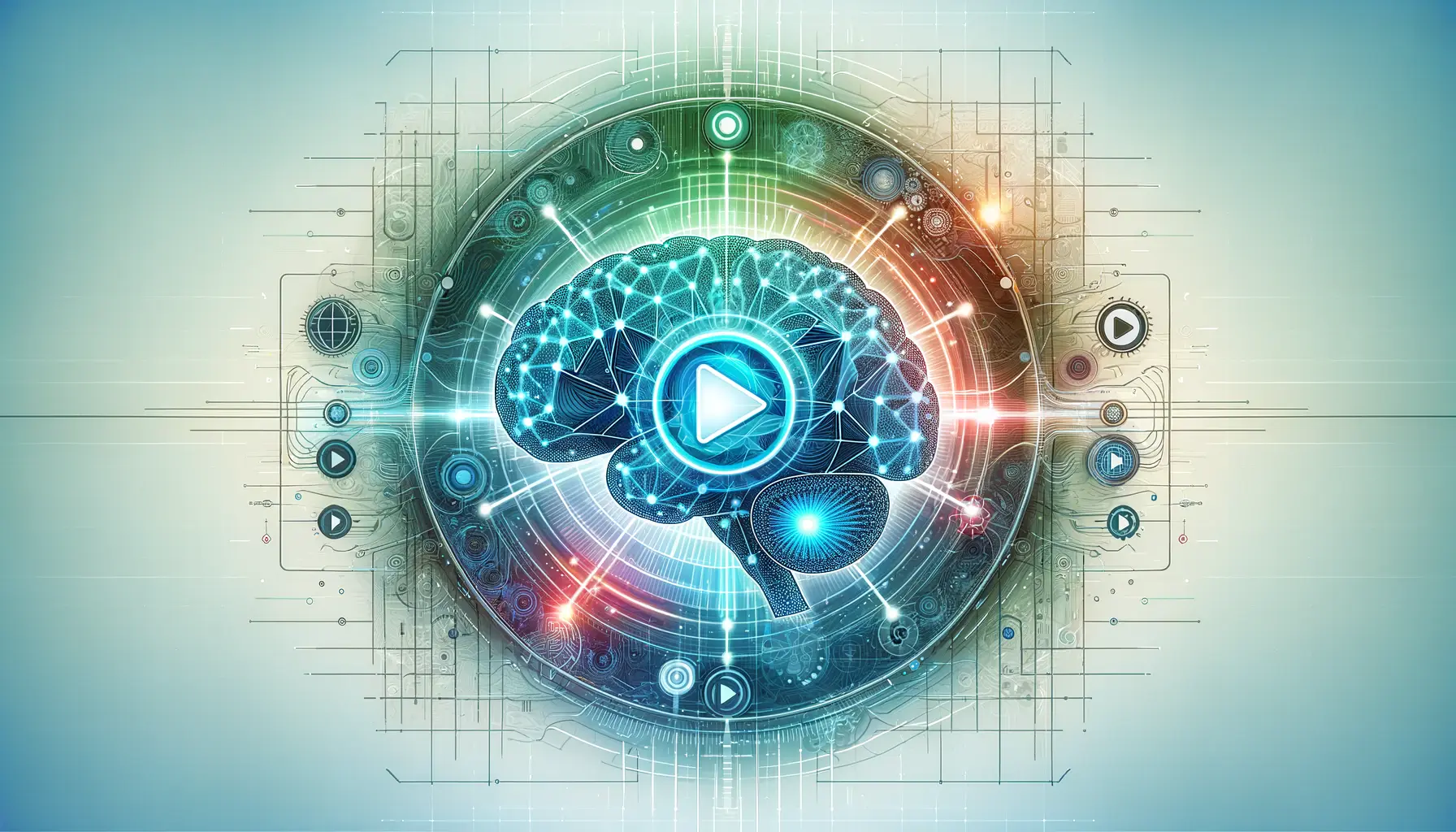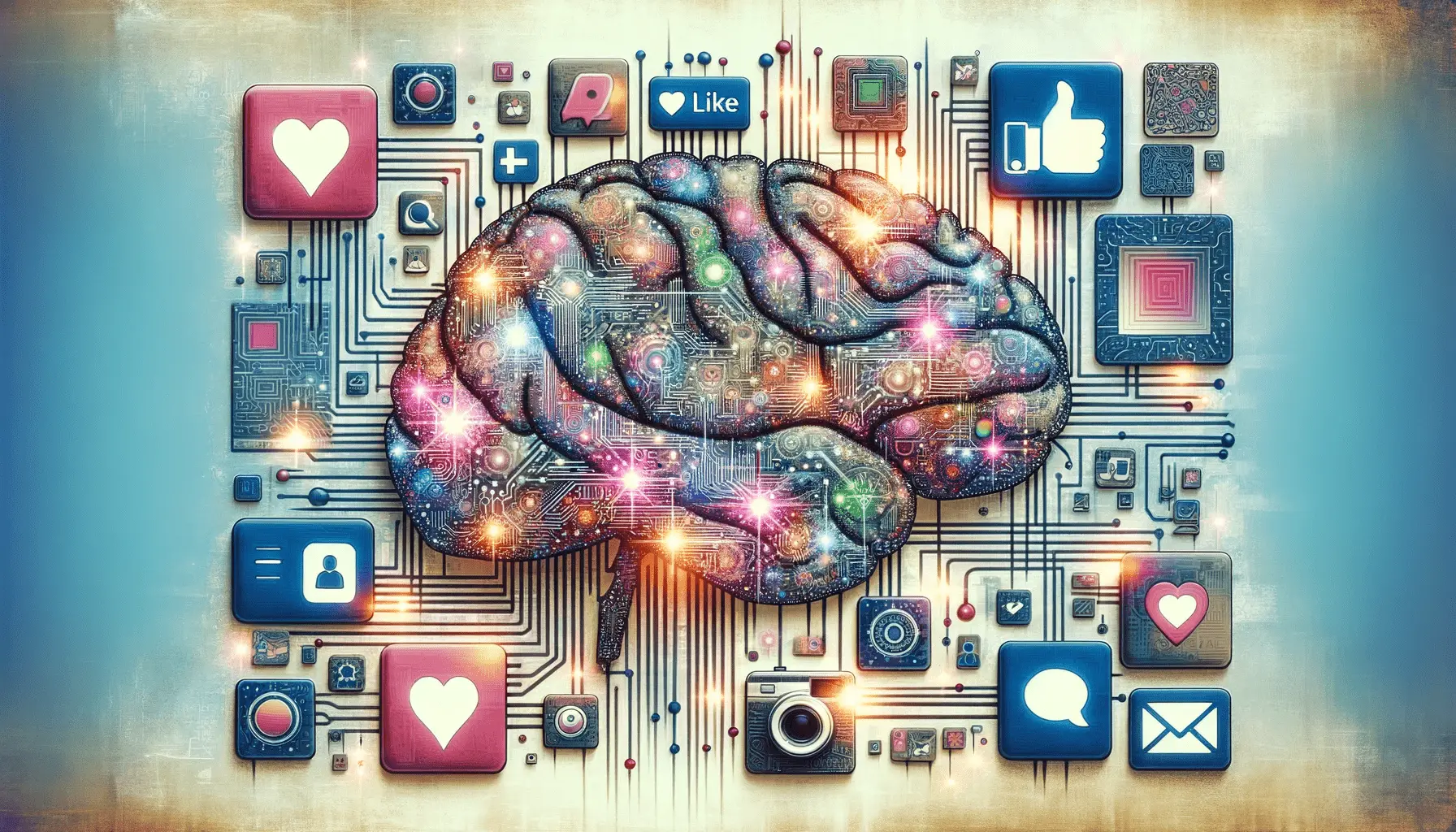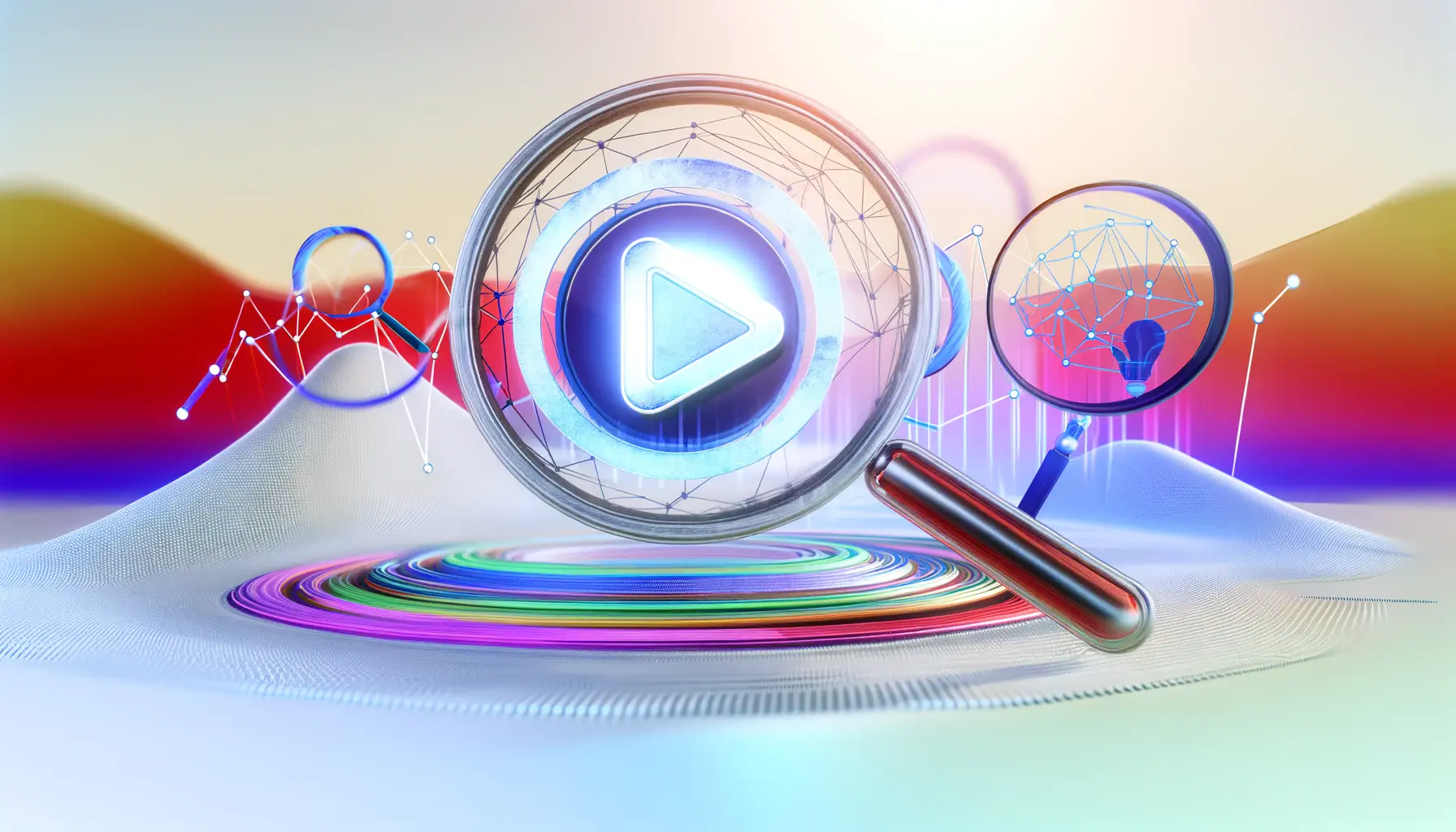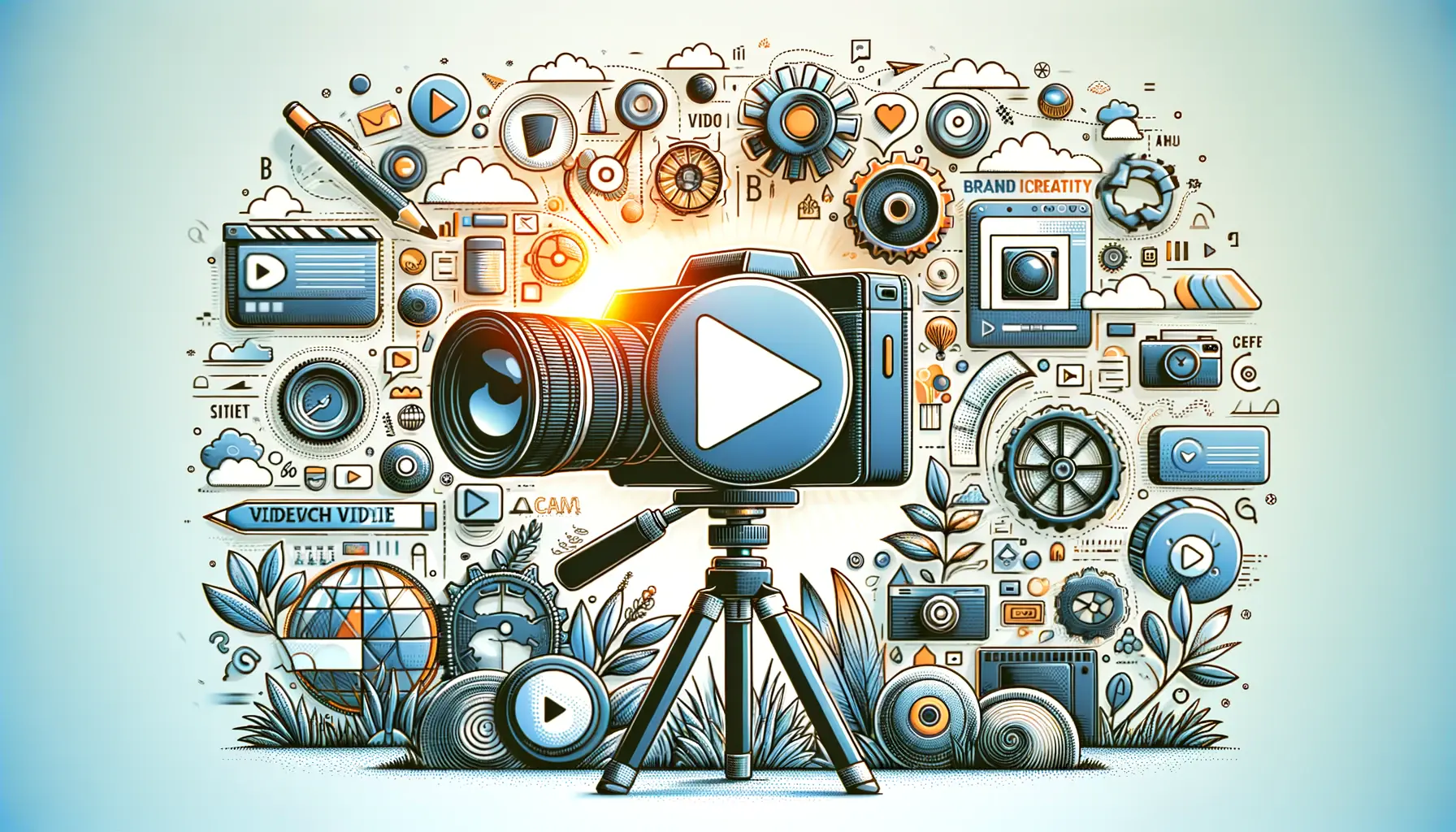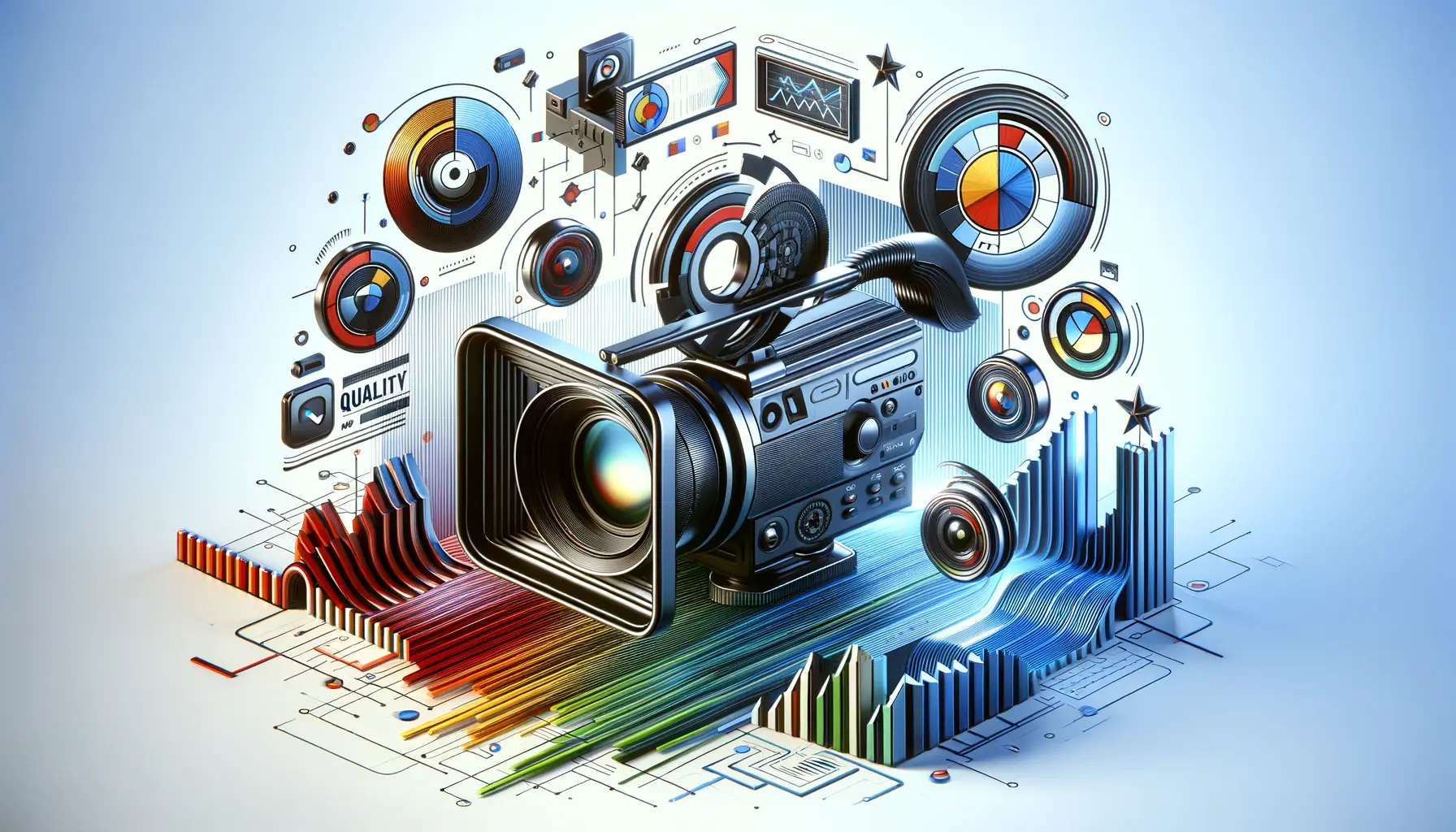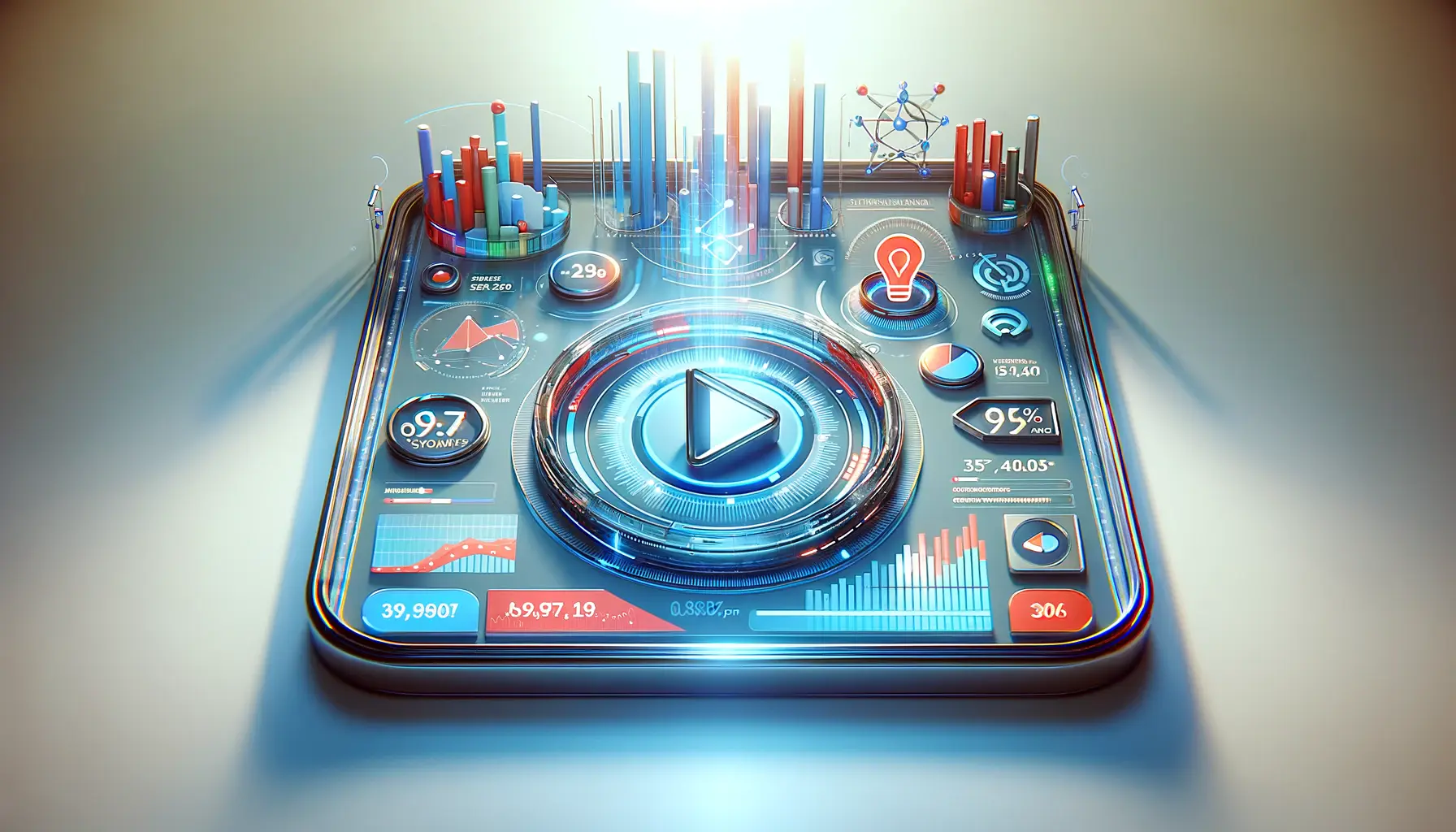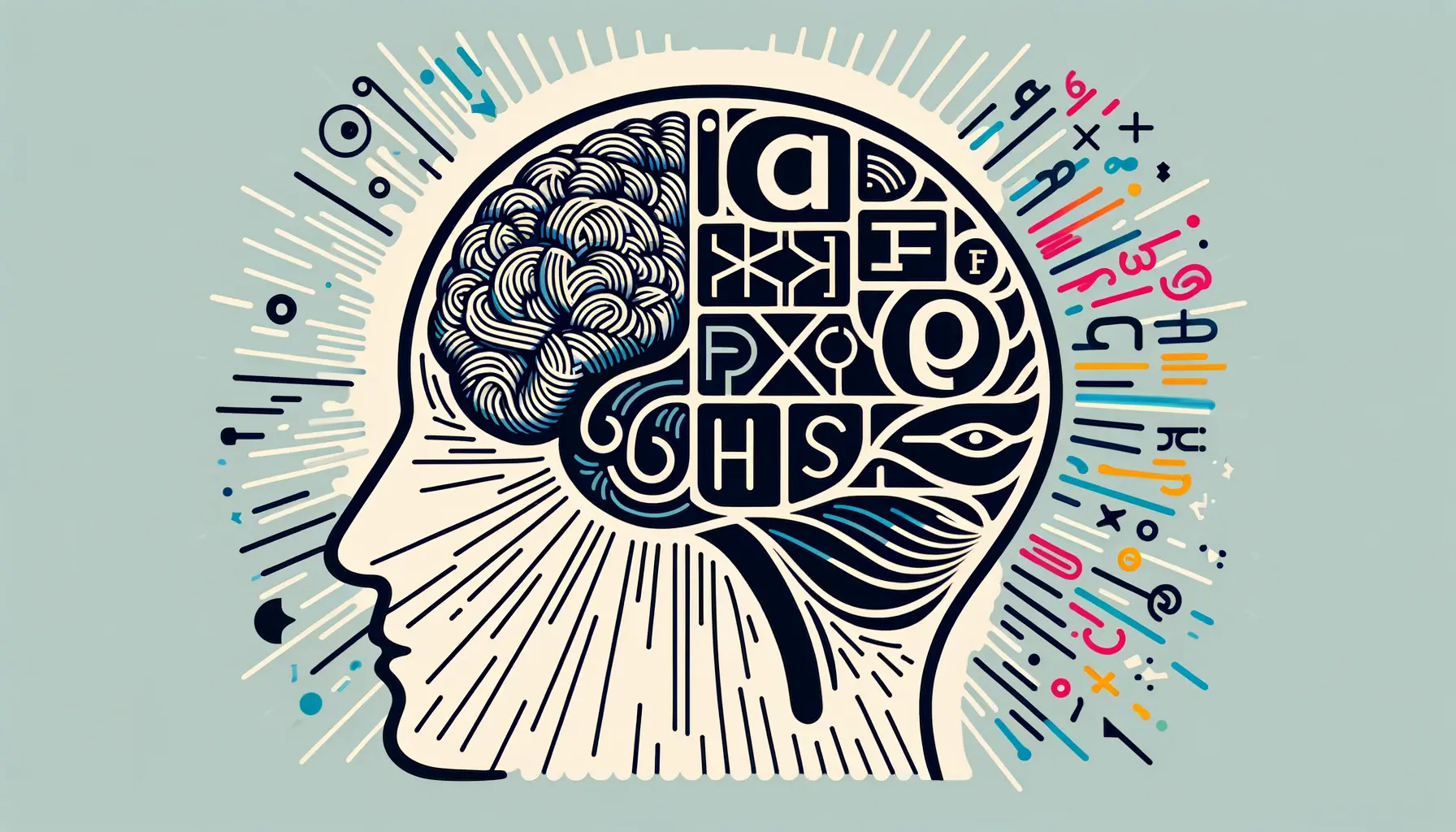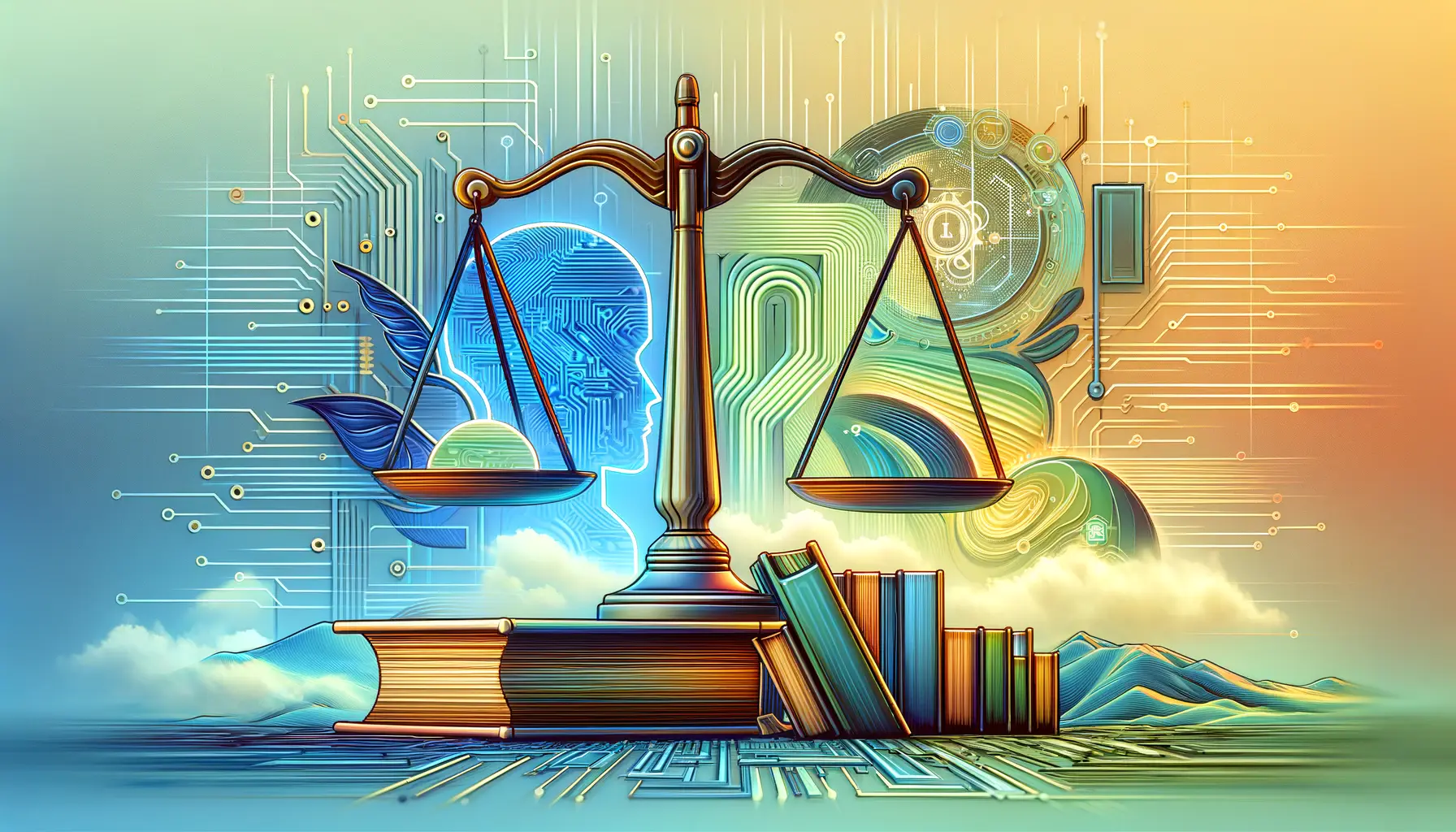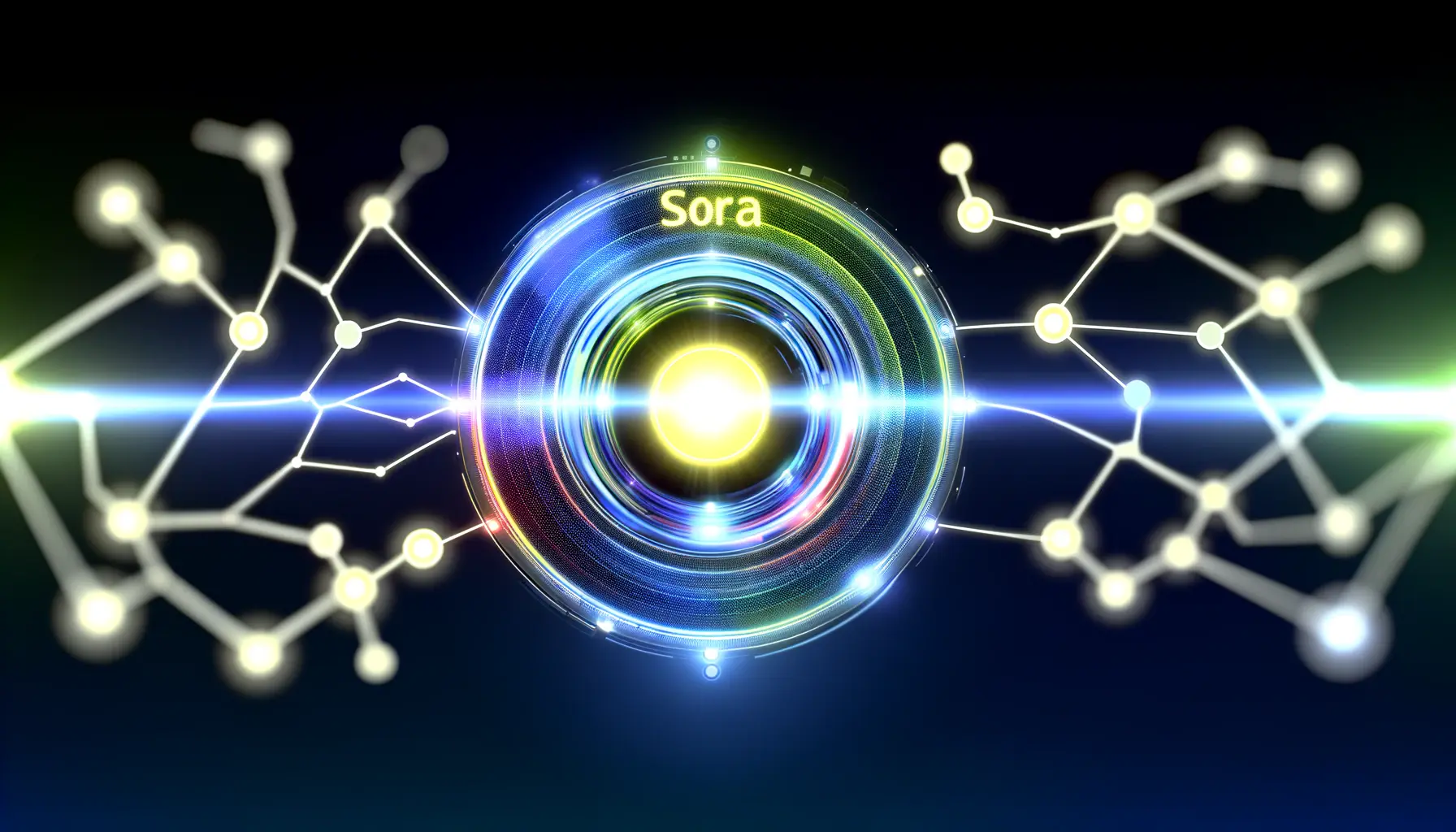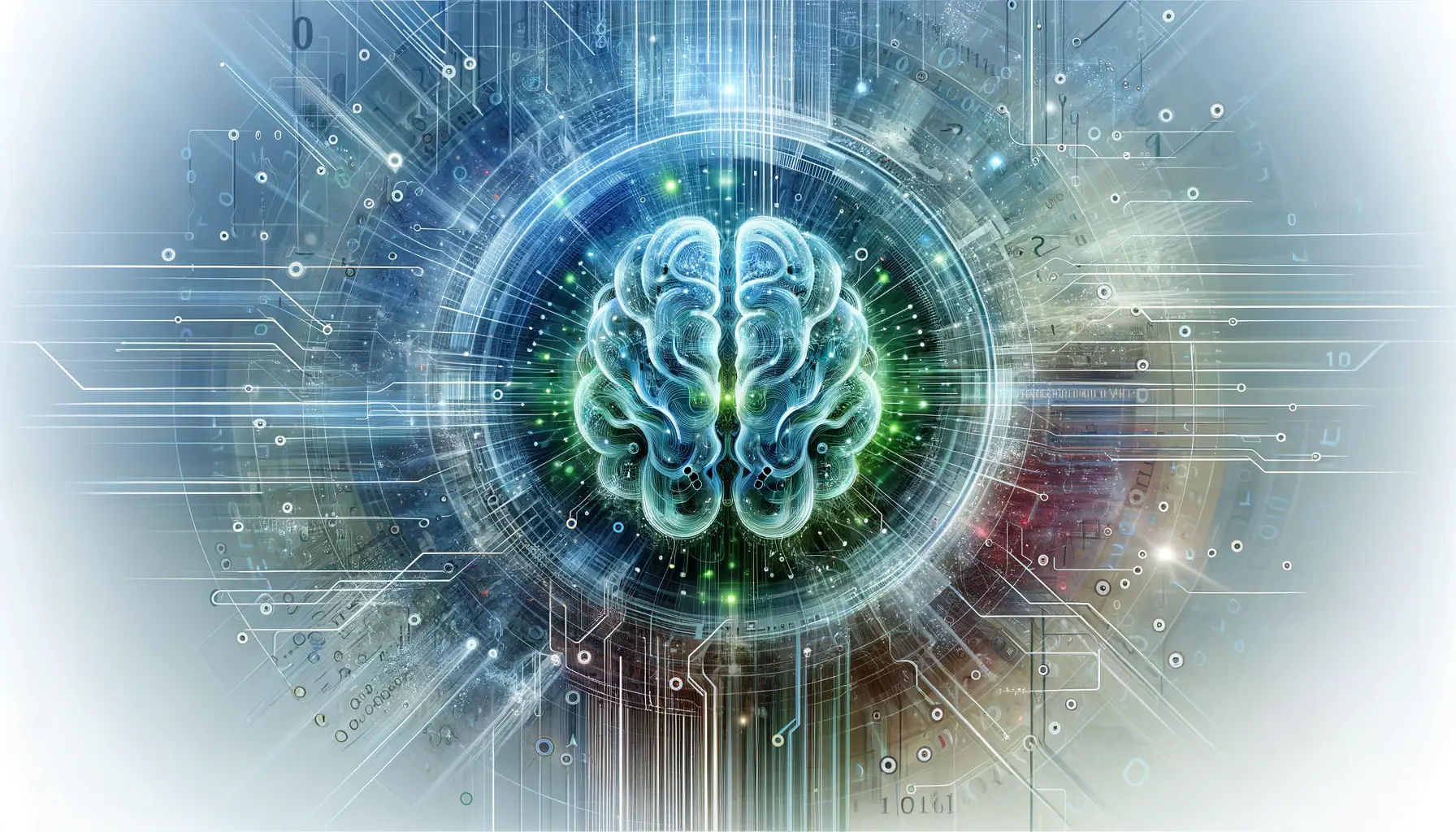The advent of AI-generated content has ushered in a new era of digital media, with OpenAI’s Sora at the forefront of this revolution.
This tool, capable of transforming text prompts into photorealistic videos, has not only showcased the prowess of artificial intelligence but also opened up a Pandora’s box of psychological implications.
The fascination and unease surrounding AI’s capabilities in video generation speak volumes about our collective psyche and our relationship with technology.
As we delve into the psychology behind Sora’s impact, it becomes clear that this is not just about technological advancement but also about understanding the human mind in the face of unprecedented digital realities.
The psychological effects of Sora’s AI-generated videos are multifaceted, ranging from awe to existential questioning.
The ability of Sora to create highly realistic videos from mere text prompts challenges our perceptions of reality, truth, and authenticity.
This phenomenon raises important questions about trust, belief, and the very nature of human experience in a digitally augmented world.
As we explore the implications of Sora’s capabilities, we must consider the psychological ramifications of living in a world where seeing is no longer believing, and the lines between the real and the artificial become increasingly blurred.
- Understanding the Psychological Impact
- Exploring the Emotional Connection
- Psychological Effects on Memory and Perception
- Impact on Social Interactions and Communication
- Challenges in Ethical Considerations and Privacy
- Future Implications and Societal Impact
- Adapting to the New Normal: Education and Policy
- Embracing the Future: The Psychology Behind Sora’s AI-Generated Video Impact
- FAQs: The Psychology Behind Sora’s AI-Generated Video Impact
Understanding the Psychological Impact
The Concept of Hyperreality
The introduction of Sora’s AI-generated videos into the mainstream has accelerated our journey into the realm of hyperreality—a condition in which the real and the artificial are indistinguishable.
This blurring of lines has profound psychological effects, as individuals struggle to discern truth from fabrication.
The ease with which Sora can generate convincing videos means that the traditional trust we place in visual media is eroding, leading to a sense of disorientation and skepticism towards digital content.
This shift towards hyperreality challenges our cognitive processes, forcing us to re-evaluate how we interpret and interact with the world around us.
The psychological strain of constantly questioning the authenticity of our visual experiences can lead to a phenomenon known as ‘reality apathy’, where individuals become indifferent to the distinction between real and artificial, accepting both with equal validity.
This apathy has significant implications for our understanding of truth, memory, and personal experience in a digitally mediated society.
The Role of Trust and Authenticity
At the heart of the psychological impact of Sora’s AI-generated videos lies the issue of trust.
Trust in media has always been a cornerstone of how we navigate information, but AI-generated content introduces a new layer of complexity.
The ability of Sora to create videos that are indistinguishable from real footage challenges our innate mechanisms for detecting falsehoods, leading to a crisis of confidence in digital content.
This erosion of trust extends beyond media, affecting interpersonal relationships and our faith in institutions, as the authenticity of any visual evidence can now be questioned.
Moreover, the authenticity of our personal experiences is also at stake.
As AI-generated content becomes more prevalent, the uniqueness of individual experiences and memories may be diluted by the knowledge that any moment can be artificially recreated with stunning accuracy.
This raises existential questions about the value of authenticity in a world where the artificial can mimic the real so convincingly.
The psychological impact of this realization is profound, prompting a reevaluation of what it means to be authentic in the digital age.
The exploration of hyperreality and the crisis of trust underscores the need for a new understanding of authenticity and truth in the era of AI-generated content.
Exploring the Emotional Connection
The integration of AI-generated videos into our daily lives, especially those created by Sora, has not only altered our perception of reality but also the way we emotionally engage with digital content.
The emotional connection we share with what we see on screens is undergoing a transformation, as the lines between created and captured moments become increasingly blurred.
This shift has significant implications for our emotional well-being and the nature of empathy in the digital age.
Emotional Authenticity in AI-Generated Content
The question of emotional authenticity arises when viewers are presented with AI-generated videos that evoke real emotions.
The ability of Sora to craft videos that can make us laugh, cry, or feel inspired, despite knowing they are the product of algorithms, challenges our traditional notions of emotional connection.
This paradoxical situation—where artificial creations elicit genuine emotions—highlights the complexity of human psychology in the digital era.
Furthermore, the emotional impact of these videos is amplified by their hyperrealistic nature.
Knowing that a heartfelt moment or a stunning visual was not captured but created raises questions about the value we assign to genuine versus artificial experiences.
This leads to a nuanced debate on the authenticity of our emotional responses to digital content, pushing us to reconsider what it means to feel in a world where emotions can be algorithmically generated.
The Impact on Empathy
The proliferation of AI-generated videos also has profound implications for empathy, a fundamental aspect of human interaction.
The immersive and emotionally charged nature of these videos can enhance our capacity for empathy by exposing us to a wider range of experiences and perspectives.
However, there’s a risk that overexposure to artificial yet realistic content could desensitize viewers, making it harder to distinguish between genuine and fabricated emotional experiences.
This potential desensitization poses a challenge to maintaining a healthy emotional balance.
It’s crucial to navigate this new landscape with awareness, ensuring that our capacity for empathy is not diminished but rather enriched by these technological advancements.
The key lies in fostering a critical mindset that encourages viewers to question and reflect on the authenticity of their emotional engagements with AI-generated content.
The emotional authenticity of AI-generated videos prompts a reevaluation of our emotional responses and the nature of empathy in the digital age.
- The balance between genuine and artificial emotional experiences is crucial for maintaining emotional well-being.
- Encouraging critical engagement with AI-generated content can help preserve the integrity of our emotional connections.
Psychological Effects on Memory and Perception
The advent of Sora’s AI-generated videos has profound implications for human memory and perception.
As these videos become increasingly indistinguishable from reality, they have the potential to alter our recollection of events and the way we perceive the world around us.
This intersection of technology and psychology opens up new avenues for understanding the malleability of human memory and the susceptibility of our perceptions to digital influences.
The ability of AI to fabricate realistic videos means that our memories, once considered sacrosanct repositories of our personal histories, are now vulnerable to manipulation.
This vulnerability raises concerns about the integrity of our past and the authenticity of our recollections.
As we navigate this new landscape, the distinction between memory and imagination becomes increasingly blurred, challenging our sense of reality and our trust in our own experiences.
Manipulation of Memory
The potential for AI-generated videos to manipulate memory is a significant psychological concern.
These videos can create false memories by presenting events that never happened as if they were real.
The implications of this are far-reaching, affecting everything from personal relationships to legal proceedings.
The ease with which memories can be altered or fabricated poses a challenge to our understanding of truth and the reliability of human recollection.
To mitigate these risks, it’s essential to develop critical viewing skills and a healthy skepticism towards digital content.
Educating the public about the capabilities and limitations of AI-generated videos can help safeguard against the manipulation of memory and ensure that our recollections remain as authentic as possible.
Shifting Perceptions of Reality
AI-generated videos also have the power to shift our perceptions of reality.
By presenting hyperrealistic depictions of events that never occurred, these videos can alter our understanding of the world.
This shift in perception can have both positive and negative consequences, from expanding our imagination and empathy to fostering confusion and mistrust in the information we consume.
The psychological impact of this shift is complex, requiring a nuanced approach to media consumption.
Encouraging a critical and questioning attitude towards the content we engage with is crucial.
By fostering media literacy and promoting awareness of the effects of AI-generated content, we can navigate the challenges posed by this technology while reaping its benefits.
- The integrity of memory and the authenticity of our recollections are at stake in the age of AI-generated videos.
- Developing critical viewing skills and media literacy is essential for navigating the psychological impacts of this technology.
Awareness and education about the capabilities of AI-generated content can help protect against the manipulation of memory and perception.
Impact on Social Interactions and Communication
The proliferation of Sora’s AI-generated videos has significant implications for social interactions and communication.
As these videos become more integrated into our daily lives, they have the potential to reshape the ways in which we connect and communicate with one another.
This transformation presents both opportunities and challenges, as the line between digital and physical interactions continues to blur.
On one hand, AI-generated videos can enhance social interactions by providing new forms of expression and storytelling.
They allow for the creation of content that can convey emotions, ideas, and narratives in ways that were previously impossible, opening up new avenues for creativity and connection.
However, on the other hand, these technologies also pose risks to authentic communication, as they can be used to create misleading or deceptive content, complicating our ability to discern truth in social exchanges.
Enhancing Creative Expression
AI-generated videos offer unprecedented opportunities for creative expression.
Individuals and communities can harness this technology to tell stories, share experiences, and express emotions in rich and immersive ways.
This new medium can foster a deeper sense of connection and understanding among people, transcending traditional barriers of language and culture.
By enabling the creation of content that resonates on a deeply personal level, AI-generated videos can strengthen social bonds and facilitate more meaningful interactions.
However, the democratization of video creation also requires a responsible approach to content generation.
As users experiment with these tools, it’s important to consider the impact of the content on audiences and the broader social fabric.
Encouraging ethical use and promoting positive messages can help maximize the benefits of AI-generated videos for social interaction and communication.
Navigating the Challenges of Authenticity
The question of authenticity in AI-generated videos poses a significant challenge for social interactions.
The ease with which these videos can mimic reality raises concerns about trust and credibility in communication.
Misinformation and deception can easily spread, undermining the foundation of trust that social interactions rely on.
This can lead to confusion, mistrust, and a degradation of social discourse.
To address these challenges, it’s crucial to develop critical media literacy skills among the public.
Educating individuals on how to identify and critically evaluate AI-generated content can help preserve the integrity of social interactions.
Additionally, fostering an environment of transparency and accountability in the creation and sharing of AI-generated videos can support the maintenance of trust in digital communication.
- AI-generated videos can enhance social interactions by providing new forms of expression and storytelling.
- The integrity of communication is challenged by the potential for misinformation and deception in AI-generated content.
Promoting critical media literacy and ethical content creation is essential for navigating the impact of AI-generated videos on social interactions and communication.
Challenges in Ethical Considerations and Privacy
The rise of Sora’s AI-generated videos brings to the forefront significant ethical considerations and privacy concerns.
As the technology advances, the ease with which individuals can create and disseminate realistic videos poses complex questions about the boundaries of ethical use and the protection of personal privacy.
These challenges require careful navigation to ensure that the benefits of AI-generated content do not come at the expense of fundamental ethical principles and individual rights.
One of the primary ethical dilemmas revolves around consent and the use of personal likenesses.
AI-generated videos have the capability to replicate individuals’ appearances and voices with startling accuracy, raising concerns about the unauthorized use of someone’s image or voice.
This not only infringes on privacy rights but also opens up avenues for misuse, such as creating misleading or harmful content without the individual’s consent.
Addressing Consent and Misuse
The issue of consent is central to the ethical use of AI-generated videos.
Ensuring that individuals have control over their digital likenesses and are fully informed about how their images and voices may be used is crucial.
This involves developing clear guidelines and legal frameworks that protect individuals’ rights while also fostering innovation.
Moreover, there needs to be a mechanism for accountability when these rights are violated, ensuring that victims of misuse have recourse to justice.
Preventing misuse of AI-generated content also requires a concerted effort from technology developers, policymakers, and the public.
By embedding ethical considerations into the development process and advocating for responsible use, the community can mitigate the risks associated with these technologies.
Public awareness campaigns and education can also play a vital role in promoting ethical standards and preventing harm.
Navigating Privacy in the Digital Age
Privacy concerns extend beyond the misuse of personal likenesses to include the broader implications of AI-generated content on personal privacy.
As AI becomes more adept at creating realistic content, the potential for surveillance and manipulation increases.
This raises questions about the balance between technological innovation and the right to privacy, challenging society to redefine privacy norms in the context of advanced AI capabilities.
To navigate these privacy challenges, a multi-faceted approach is necessary.
This includes implementing robust data protection regulations, developing technologies that prioritize privacy, and fostering a culture of respect for personal boundaries in the digital realm.
By taking these steps, it’s possible to harness the power of AI-generated videos while safeguarding individual privacy and maintaining ethical standards.
- Consent and the unauthorized use of personal likenesses are key ethical considerations in the use of AI-generated videos.
- Developing legal frameworks and promoting ethical use are essential for addressing privacy concerns and preventing misuse.
Balancing innovation with the protection of privacy rights is crucial in the ethical deployment of AI-generated content.
Future Implications and Societal Impact
The emergence of Sora’s AI-generated videos heralds a transformative shift in the landscape of digital media, with far-reaching implications for society at large.
As this technology continues to evolve, it will undoubtedly shape cultural norms, influence economic models, and challenge legal frameworks.
Understanding the potential future implications of AI-generated content is crucial for preparing society to navigate the opportunities and challenges that lie ahead.
The societal impact of AI-generated videos extends beyond the immediate concerns of authenticity and privacy to encompass broader questions about the role of technology in shaping human experience.
As AI becomes more integrated into our lives, it has the potential to redefine creativity, alter the nature of work, and influence the ways in which we consume media.
These changes offer exciting possibilities but also necessitate a careful consideration of the values we wish to uphold in a digitally augmented future.
Shaping Cultural Norms and Creativity
AI-generated videos have the potential to democratize content creation, making it accessible to a wider audience and fostering a new era of creativity.
This democratization can lead to a flourishing of diverse voices and perspectives, enriching the cultural landscape.
However, it also poses the risk of homogenizing content as algorithms tend to replicate patterns based on existing data.
Navigating this balance between innovation and diversity will be key to ensuring that AI enhances rather than diminishes cultural richness.
Moreover, the role of AI in shaping cultural norms through media representation is significant.
As AI-generated content becomes more prevalent, it will influence perceptions of identity, community, and reality itself.
Ensuring that these technologies promote inclusivity and diversity will be crucial for fostering a healthy cultural environment.
Transforming Economic Models and Legal Frameworks
The economic implications of AI-generated videos are profound, with the potential to disrupt traditional industries and create new markets.
For content creators, AI offers tools to reduce production costs and time, opening up new possibilities for innovation and entrepreneurship.
However, this also raises questions about intellectual property rights, compensation, and the economic value of human versus AI-generated creativity.
Legal frameworks will need to adapt to address the challenges posed by AI-generated content, including issues of copyright, liability, and consent.
Developing regulations that protect creators’ rights while fostering innovation will be essential for navigating the economic and legal landscapes of the future.
- The democratization of content creation through AI has the potential to enrich cultural diversity but also requires careful management to avoid homogenization.
- AI-generated videos will influence economic models and necessitate updates to legal frameworks to address new challenges.
The societal impact of AI-generated content underscores the need for a balanced approach that embraces innovation while safeguarding cultural, economic, and legal integrity.
Adapting to the New Normal: Education and Policy
As the world grapples with the rapid advancements in AI-generated video technologies like Sora, the need for adaptive education systems and forward-thinking policy frameworks becomes increasingly apparent.
These adaptations are essential for equipping individuals and societies with the tools to navigate the complexities of a future where the lines between digital and physical realities are blurred.
Education and policy play pivotal roles in shaping how we understand, interact with, and govern the use of AI-generated content, ensuring that these technologies serve the public good while minimizing potential harms.
Education systems worldwide are tasked with the challenge of preparing the next generation for a future dominated by AI.
This involves not only imparting technical skills but also fostering critical thinking, ethical reasoning, and media literacy.
By integrating these competencies into the curriculum, educators can empower students to critically engage with AI-generated content, discerning its authenticity and understanding its implications for society.
Revamping Education for the Digital Age
The revamping of education to include a focus on digital literacy and AI awareness is crucial.
Students must be taught how to navigate the digital landscape responsibly, recognizing the potential for misinformation and the importance of verifying sources.
Additionally, education should encourage creativity and ethical considerations in the use of AI technologies, preparing students to contribute positively to the development and application of these tools.
Moreover, the role of continuous education and public awareness campaigns cannot be overstated.
As AI technologies evolve, so too must the public’s understanding of them.
Lifelong learning initiatives and accessible educational resources are vital for ensuring that all members of society can adapt to the changing technological landscape.
Shaping Policy for a Future with AI
On the policy front, governments and international bodies must develop regulations that address the ethical, legal, and social implications of AI-generated videos.
This includes creating standards for transparency, accountability, and privacy protection in the development and use of AI technologies.
Policymakers must also consider the economic impacts of AI, ensuring that the benefits of these technologies are widely distributed and that workers displaced by automation have pathways to new opportunities.
Collaboration between governments, industry, academia, and civil society is essential for crafting policies that balance innovation with ethical considerations.
By engaging in open dialogue and consultation, stakeholders can identify shared values and objectives, laying the groundwork for regulations that support a healthy digital ecosystem.
- Educational reforms and public awareness campaigns are critical for building digital literacy and ethical engagement with AI-generated content.
- Policy frameworks must evolve to address the challenges and opportunities presented by AI, focusing on transparency, accountability, and equitable access to benefits.
Neglecting the educational and policy dimensions of AI’s advancement risks widening the digital divide and exacerbating social inequalities.
Embracing the Future: The Psychology Behind Sora’s AI-Generated Video Impact
The exploration of Sora’s AI-generated video impact on psychology reveals a complex tapestry of human emotion, cognition, and social interaction.
As we stand on the brink of a new era in digital media, the implications of this technology extend far beyond the technical realm, touching the very core of our psychological experience.
The journey through the psychological, social, and ethical landscapes shaped by Sora’s capabilities has illuminated both the challenges and opportunities that lie ahead.
Navigating the Psychological Frontier
At the heart of Sora’s impact is the profound effect on our perception of reality, memory, and authenticity.
The technology challenges us to reconsider our understanding of truth and the authenticity of our experiences.
As we adapt to this new normal, the psychological resilience and adaptability of individuals will be key to navigating the uncertainties of a world where the boundaries between real and artificial are increasingly blurred.
Strengthening Social Fabric in the Digital Age
The influence of AI-generated videos on social interactions and communication underscores the need for a nuanced approach to digital content.
As these technologies enhance our ability to express and connect, they also pose risks to the authenticity of our social exchanges.
Fostering a culture of critical media literacy and ethical content creation will be crucial for maintaining the integrity of our social fabric.
Upholding Ethics and Privacy
The ethical considerations and privacy concerns surrounding Sora’s AI-generated videos call for a balanced approach to innovation.
Protecting individual rights while promoting the responsible use of AI is paramount.
As we forge ahead, the development of clear ethical guidelines and robust privacy protections will be essential for ensuring that AI serves the greater good.
Preparing for a Transformative Future
The societal impact of Sora’s AI-generated videos invites us to envision a future shaped by the integration of AI in every aspect of life.
From cultural expression to economic models and legal frameworks, the potential for AI to transform our world is immense.
Embracing this future requires a commitment to education, policy adaptation, and an ongoing dialogue among all stakeholders.
- The need for psychological adaptability in the face of changing perceptions of reality.
- The importance of ethical considerations and privacy protections in the use of AI-generated content.
- The role of education and policy in shaping a future where AI enhances human experience.
In conclusion, the psychology behind Sora’s AI-generated video impact offers a window into the future of human interaction with technology.
As we navigate this evolving landscape, our ability to adapt, understand, and ethically engage with AI-generated content will determine the quality of our digital future.
The journey ahead is fraught with challenges, but it also offers unparalleled opportunities for growth, creativity, and connection.
By embracing these opportunities with a mindful approach to the psychological, social, and ethical implications, we can ensure that the future of AI-generated content enriches our lives in meaningful ways.
FAQs: The Psychology Behind Sora’s AI-Generated Video Impact
Explore common questions about the psychological effects and implications of AI-generated videos.
AI-generated videos can alter perceptions of reality, affect trust, and influence memory, challenging our understanding of authenticity and truth.
They contribute to a ‘post-truth’ world, making it harder to discern real from fake, thereby eroding public trust in digital content.
Yes, by shaping perceptions and behaviors, AI moderation can significantly impact user trust and acceptance in digital platforms.
AI poses risks like copyright infringement, theft of likeness, and could potentially compromise the authenticity of real-life events.
Creativity in AI content is crucial for engagement and connection, influencing the likelihood of content being shared and valued.
It can create false memories by presenting fabricated events as real, challenging our recollection and understanding of past events.
Issues include consent for using likenesses, potential for misinformation, and the ethical use of technology in content creation.
Through education on digital literacy, ethical guidelines for content creation, and policies that address privacy and authenticity concerns.
